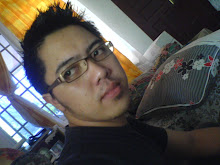"Would you take time to listen and read books by authors who has disagreed (at some level or another) with the author you really like?"
I ask this because i do have a tendency of disliking those who are slaying my hero. And because of that it does have some sort of effect in my mind every time their names come up or I have this preconceived notion already of their positions in what they write about. But thinking again, it would not be helpful if we do want to broaden our perspectives on ideas, theological issues and many other stuff.
People often talk about being charitable and things like that, but at times I'm not sure what view of being charitable is accounted for the meaning of the word. But let me just add that we don't normally follow this rule of conduct. I would just say that we are charitable on a certain degree (most of the time a very small degree) but the bulk of our assessment would always be on a disagreement basis. I think the only realistic solution to this is being able to take whatever criticism that is projected, respect the persons position relentlessly and present your own views. When there is a need to alter your positions, do so. The important thing is i should say, not to make it personal.
I think in things like disagreements between theologians on various issues, our duty as learners is not to take sides relentlessly. Of course we do have theologians which we resonate more to, but we do need to hear out critics as well. It simply broadens our perspectives on things. It also helps us be humble. Ideas and the revolutionary paths they can chart sometimes can cause us to think that we are in the elite. But at some points criticism brings us down to earth.
So my hope is that for me personally, if my heroes get slain with disagreements, regardless of how uncharitable their positions might be, i will have to conjure enough strength not to read their criticism in all their writings. In this world we need encouragements, affirmation form others and people who think like us for support. But on the other hand we need some sharpening along the way, in where criticism 'helps'. In the case of disagreements, I would like to be charitable to those who slay my heroes. I can learn from them too. Although my ears are red listening to their positions, I'll try as much to change the colours in time.


No comments:
Post a Comment